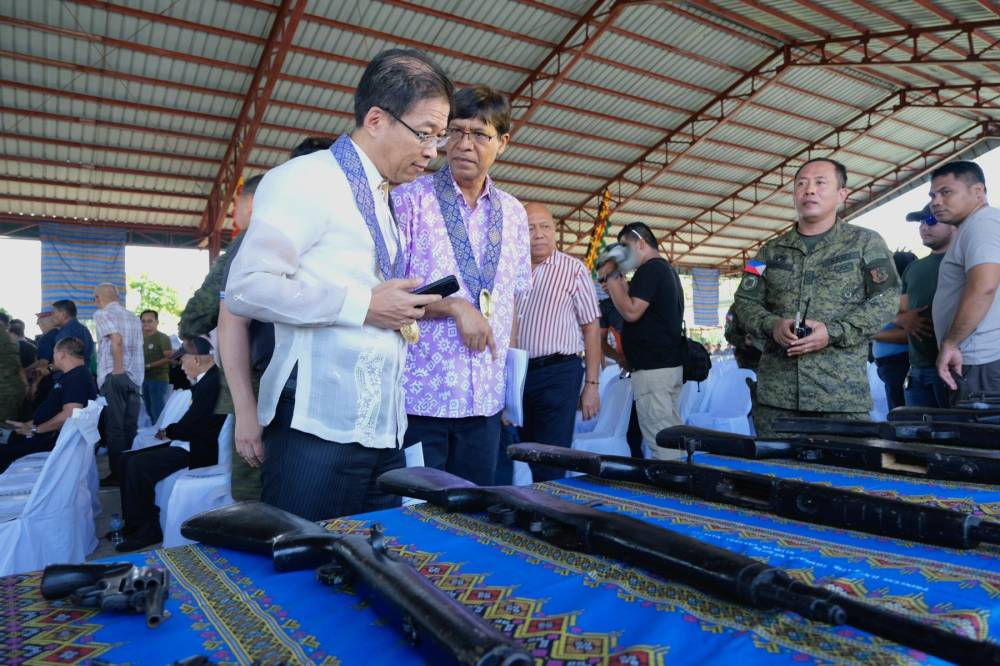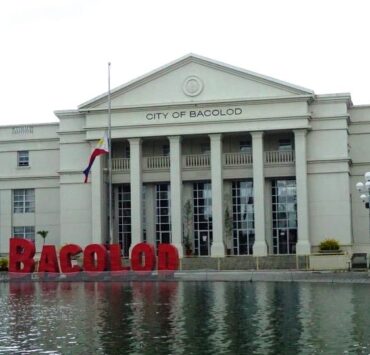BARMM widens antigun drive

GENERAL SANTOS CITY—Authorities are casting a wider net to curb the proliferation of loose firearms in the Bangsamoro region, with a Japanese-funded project launched last year in Basilan now extended to Maguindanao del Norte.
The United Nations Development Program (UNDP) rolled out the Japanese-funded Assistance for Peace, Security, Integration and Recovery for Advancing Human Security or Aspire project in Mother Kabuntalan, Maguindanao del Norte, on Nov. 13.
Maguindanao del Sur has also been included among the pilot areas of the Aspire project, the launching of which has yet to be announced.
The Aspire project complements the Small Arms and Light Weapons program (SALW) in the Bangsamoro of the Office of the Presidential Adviser on Peace, Reconciliation and Unity (Opapru) and also provides socioeconomic assistance to individuals who take part in the initiative, giving them an incentive to register their undocumented firearms.
In particular, Aspire aims to ensure the registration and stenciling of loose firearms in the Bangsamoro Autonomous Region in Muslim Mindanao (BARMM).
More than a year after it was launched in Basilan in October last year, around 800 firearms have been turned in to the government under the program, according to the Opapru.
Grounds gained
The $5-million (about P295 million) project, which has already gained ground in Basilan, is implemented by the UNDP Philippines under the oversight of the Joint Normalization Committee (JNC) of the Philippine government and the Moro Islamic Liberation Front (MILF). The project is seen as a crucial component of the normalization aspect’s security component, as it directly complements the decommissioning process of Moro Islamic Liberation Front (MILF) combatants and their weapons, which was provided under their peace pact with the government.
During its launch in Maguindanao del Norte, officials raised the concern posed by the proliferation of unregistered firearms as the BARMM gears up for the historic regional parliamentary elections scheduled in May 2025.
“We all agree that the presence of unauthorized weapons poses a serious threat to peace and stability in the region or any locality for that matter,” retired military Gen. Cesar Yano, chair of the government’s peace implementing panel, said in a statement on Monday.
Yano, a senior official of the Opapru, said the rollout of Aspire in Maguindanao del Norte highlighted the progress in advancing the management of the agency’s SALW program, a major item in the Annex of Normalization of the Comprehensive Agreement on the Bangsamoro (CAB).
The CAB was signed by the government and the MILF in 2014 after 17 years of peace negotiations. The peace deal provided for the establishment of an autonomous Muslim region, which was realized in 2019 following the ratification of Republic Act No. 11054 or the Organic Law for the BARMM.
Gun culture
Aside from improving the security situation in the region, Aspire also seeks to involve all members of the community in the collective effort.
“The issue of loose firearms remains a source of great, significant concern for the citizens in the region,” Minister Kenichi Matsuda of the Embassy of Japan in the Philippines said in a statement.
A study entitled, “Appeasing Violence, Conjuring Peace,” and was published by the nonprofit Council for Climate and Conflict Action (CCCA) Asia in August this year, said the problem of loose firearms in the Bangsamoro region would be difficult to resolve because of the presence of different armed groups and the culture prevailing in the area.
“In the Bangsamoro, the presence of armed groups, private armies and a culture that encourages retribution has made gun ownership necessary to provide a sense of security,” said the CCCA study.
Ariel Hernandez, JNC cochair, echoed the Japanese government’s call to further strengthen the implementation of the Aspire project in the Bangsamoro.
He also called on the support of local chief executives, as the successful implementation of the Aspire project would largely depend on that support.”Our local executives, they are the key here. If the program is not seriously implemented, it will be difficult to make it successful,” said Hernandez.

















